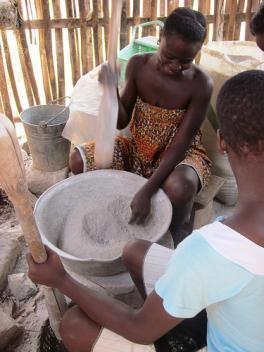 News media and the blogosphere have recently been filled with talk of the food crisis and the future of feeding a growing population. And rightly so: the problem has never been more critical nor a move towards finding solutions more urgent. Many offer macro approaches such as taming commodities speculation that is said to contribute to rising food prices or fostering farmer-to-farmer networks. These are undoubtedly necessary long-term directions that will enable a sustainable future in which people are no longer hungry.
News media and the blogosphere have recently been filled with talk of the food crisis and the future of feeding a growing population. And rightly so: the problem has never been more critical nor a move towards finding solutions more urgent. Many offer macro approaches such as taming commodities speculation that is said to contribute to rising food prices or fostering farmer-to-farmer networks. These are undoubtedly necessary long-term directions that will enable a sustainable future in which people are no longer hungry.
Concurrently, we can also address the issue on individual community levels by focusing on innovative activities provide people with the means to more immediately address hunger and poverty. These efforts advocate for benefits that are derived from holistic changes to the food system and individual empowerment through personal income generation – especially for women. Proven methods such as the planting of moringa trees in Limpopo have enabled dramatic decreases in community malnutrition and increases in community income.
The Hunger Project (THP) strives to mobilize communities to engage in similar income-generating activities – one of which also being the production and promotion of moringa powder in Benin as a dietary supplement – that improves the health and livelihoods of impoverished families. THP-Senegal’s Bio Bissap project (the cultivation of organic hibiscus) and THP-Ghana’s calcium mixture-making activity, among others, all empower women to create a sustainable source of income and strengthen the financial stability of their families. Income-generating activities, supplemented with our primarily women-run epicenter microfinance programs, yield immediate results such as increased school-enrollment for children, improved nutrition and women’s empowerment in the community. This aspect of THP’s work seeks to mobilize individuals and families to envision and implement their own income-generating activity and thereby immediately and sustainably increasing their welfare.
This grassroots focus, when combined with larger-scale approaches, can add to the well-being of impoverished communities not only in the long run, but also promote prompt, self-sustaining livelihoods.
Content submitted by THP-intern Heidi Chan
